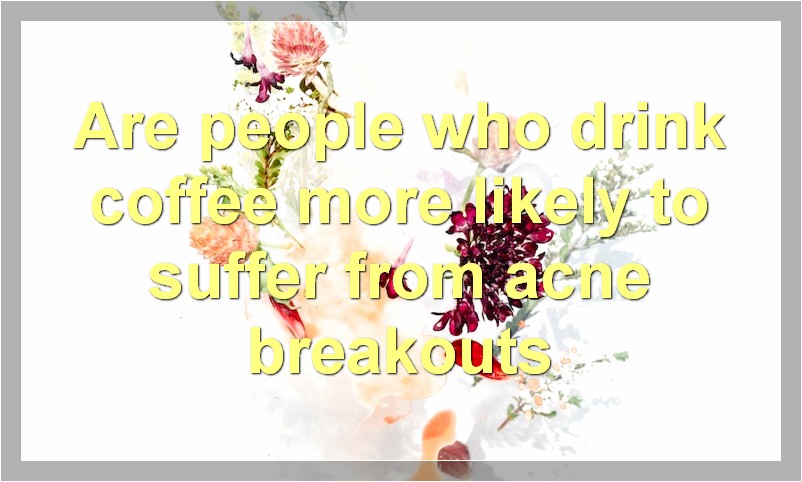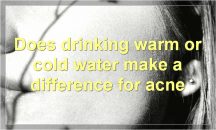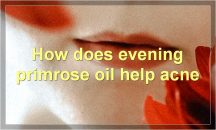Acne is an inflammatory skin condition that is characterized by the appearance of pimples, blackheads, and whiteheads. According to the National Institutes of Health, acne is the most common skin disorder in the United States, affecting up to 50 million Americans annually. While there are many factors that can contribute to the development of acne, recent research has suggested that coffee may be one of them.
How does coffee intake affect acne

Coffee is one of the most popular beverages in the world, and its popularity is only increasing. More and more people are turning to coffee as a way to improve their focus and energy levels. However, there is some debate about whether or not coffee is good for your skin. Some people believe that coffee can cause or worsen acne, while others believe that it has no effect on acne whatsoever.
So, what is the truth? Does coffee intake affect acne?
The short answer is that we don’t know for sure. There is no definitive scientific evidence that coffee causes or worsens acne. However, there are a few studies that suggest that coffee may have an impact on acne.
One study, for example, found that people who consume more than two cups of coffee per day are more likely to develop acne than those who consume less coffee. Another study found that people who drink coffee have higher levels of the hormone cortisol, which has been linked to increased acne breakouts.
So, while we cannot say for certain that coffee causes acne, there is some evidence to suggest that it may be a contributing factor. If you are concerned about the impact of coffee on your skin, you may want to consider limiting your intake or switching to decaf.
What is the link between coffee and acne
Coffee is a delicious morning beverage that many of us enjoy on a daily basis. It’s no secret that coffee can have some pretty amazing benefits for our health. But did you know that coffee can also help to clear up your skin?
That’s right, coffee has been shown to be an effective natural treatment for acne. In fact, some studies have even found that coffee may be more effective than traditional acne treatments like benzoyl peroxide.
So, how does coffee help to clear up acne?
Well, it all has to do with the caffeine content in coffee. Caffeine has been shown to have numerous benefits for our skin, including reducing inflammation and redness.
In addition, caffeine also helps to increase blood flow and stimulate cell turnover, which can help to unclog pores and prevent future breakouts.
So, if you’re struggling with acne, consider incorporating coffee into your skincare routine. You can use brewed coffee as a face mask or scrub, or you can even drink it regularly to help improve your skin from the inside out.
Is there a correlation between coffee consumption and acne severity
A cup of coffee in the morning is a must for many people. It’s a way to jump start the day, and it provides the energy needed to power through the morning hours. But for some, there’s another effect of coffee that’s not so desirable: acne.
Acne is a skin condition that’s characterized by the appearance of pimples, blackheads, and whiteheads. It’s most commonly seen in teenagers, but it can affect people of all ages. While there are many factors that can contribute to the development of acne, coffee consumption is one that’s often overlooked.
So, is there a correlation between coffee and acne? Let’s take a closer look.
Coffee and Caffeine
Coffee is a major source of caffeine, which is a stimulant. When you drink coffee, the caffeine enters your bloodstream and travels to your brain. There, it blocks the action of adenosine, a neurotransmitter that makes you feel sleepy. This is why caffeine has energizing effects.
Caffeine also has other effects on the body. It can increase your heart rate and blood pressure, and it can also promote the release of certain hormones, like adrenaline and cortisol. These hormones are part of the body’s stress response system, and they can have negative effects on the skin.
For example, cortisol can increase oil production, which can lead to clogged pores and breakouts. Adrenaline, on the other hand, can constrict blood vessels and reduce blood flow to the skin. This can make existing pimples look redder and more inflamed.
In addition to its direct effects on the body, caffeine also indirectly affects acne by disrupting sleep. When you don’t get enough sleep, your body produces more cortisol. As we mentioned before, cortisol can increase oil production and lead to breakouts. So, if you’re drinking coffee late in the day, it could be interfering with your sleep and making your acne worse.
The Bottom Line
There is some evidence to suggest that coffee consumption can worsen acne. Caffeine can have direct and indirect effects on the skin, all of which can contribute to the development of pimples and other blemishes. If you’re struggling with acne, you may want to cut back on your coffee intake or switch to decaf.
Does caffeine play a role in the development of acne
Caffeine is a stimulant that is known to promote wakefulness and alertness. It is also a diuretic, which means it helps to promote urination. Caffeine is found in coffee, tea, energy drinks, and chocolate. It is also added to some medications.
Acne is a common skin condition that affects people of all ages. It is characterized by the presence of pimples or blackheads. Acne occurs when the hair follicles become plugged with oil and dead skin cells. The plugged follicles can become inflamed or infected.
There is no direct evidence that caffeine plays a role in the development of acne. However, some studies have suggested that caffeine may be a contributing factor. One study found that people who consume more than three cups of coffee per day are more likely to develop acne than those who consume less than three cups per day. Another study found that people who consume energy drinks are more likely to develop acne than those who do not consume energy drinks.
The exact cause of acne is unknown. However, it is thought to be related to hormones, genetics, and certain lifestyle choices. These factors can all contribute to the development of acne.
Are people who drink coffee more likely to suffer from acne breakouts

Coffee and Acne: The Link You Need to Know
Do you love your morning cup of joe, but can’t seem to shake your acne? You’re not alone. Many people believe that there is a link between coffee and acne breakouts.
While the jury is still out on whether or not coffee is directly responsible for causing acne, there is some evidence to suggest that it can make breakouts worse.
Coffee is a diuretic, which means it helps to flush fluids out of your body. This can lead to dehydration, which can in turn cause your skin to produce more oil. This excess oil can clog pores and lead to breakouts.
In addition, coffee contains caffeine, which is a stimulant. Stimulants can increase stress levels, and high levels of stress have been linked to an increase in acne flare-ups.
So what does this all mean for you? If you’re struggling with acne, you may want to cut back on your coffee intake or switch to decaf. And if you’re looking for ways to reduce stress, consider adding some relaxation techniques into your daily routine.
What is the connection between coffee and acne flare-ups
Coffee is a morning staple for many of us. We rely on that first cup of joe to get us out of bed and help us face the day. But for some people, coffee isn’t just a pick-me-up – it’s a trigger for acne flare-ups.
If you’re one of the unlucky few who find that their skin breaks out after drinking coffee, you may be wondering what the connection is. Unfortunately, there isn’t a definitive answer, as everyone’s skin reacts differently to different foods and beverages. However, there are a few theories as to why coffee may cause acne flare-ups for some people.
One theory is that coffee is a diuretic, which means it helps to flush fluids out of your body. When your body is dehydrated, it produces more sebum, or oil, which can clog pores and lead to breakouts.
Another theory is that coffee contains caffeine, which can increase stress levels and cortisol production. High levels of cortisol have been linked to an increase in sebum production, which can again lead to clogged pores and breakouts.
So if you find that your skin starts acting up after you drink coffee, you may want to try cutting back or eliminating it from your diet altogether. And if you do decide to keep drinking coffee, make sure to stay hydrated by drinking plenty of water throughout the day.
Can reducing coffee intake help improve one’s acne condition
It’s no secret that coffee can be a major contributor to acne. Caffeine is a known trigger for breakouts, and coffee is loaded with it. So it stands to reason that reducing your coffee intake could help improve your acne condition.
But how much coffee is too much? And what are the best ways to cut back on your intake if you’re a die-hard coffee fan? We talked to dermatologists and skincare experts to find out.
How does coffee cause acne?
“Coffee contains caffeine, which is a diuretic,” board-certified dermatologist Dr. Shari Sperling told POPSUGAR. “Diuretics promote dehydration, which can lead to dry skin.” And as we all know, dry skin is one of the major causes of acne.
But that’s not the only way coffee can wreak havoc on your skin. “Coffee also increases cortisol levels,” said Dr. Sperling. Cortisol is our body’s stress hormone, and when we’re stressed, our skin goes into overdrive producing oil, which can lead to breakouts.
So if you’re struggling with acne, cutting back on coffee might be a good place to start. But how much should you cut back? And what are the best ways to do it? We asked the experts for their advice.
How much coffee should you cut back?
If you’re trying to improve your acne, you don’t necessarily have to give up coffee altogether. “I generally recommend that my patients limit themselves to one cup of coffee per day,” said Dr. Sperling.
But if you’re a major caffeine fiend, even one cup might be too much. “If you’re drinking multiple cups of coffee per day, I would recommend cutting back to one or two cups per week,” said Dr. Sperling. “And be sure to drink plenty of water throughout the day to stay hydrated.”
How can you cut back on your coffee intake?
If you’re used to downing multiple cups of coffee per day, cutting back can be tough. But there are a few things you can do to make it easier.
First, try slowly reducing your intake over time. “If you’re drinking four cups of coffee per day, try cutting back to three cups for a week or two, then two cups, and so on,” said Dr. Sperling. “This will help your body adjust more slowly and avoid any potential withdrawal symptoms.”
Another option is to switch to decaf coffee or tea. “Decaf still has some caffeine, but it’s significantly less than regular coffee,” said Dr. Sperling. “So it can be a good way to wean yourself off of caffeine without giving up your morning cup of joe.”
Finally, be sure to drink plenty of water throughout the day. “Water helps keep your skin hydrated and flushes toxins out of your system,” said Dr. Sperling. “So it’s important to drink plenty of it regardless of whether you’re trying to improve your acne or not.”
What other factors besides coffee consumption can contribute to the development of acne
Acne is a common skin condition that affects millions of people around the world. Though often associated with teenage years, acne can affect people of all ages. There are many factors that can contribute to the development of acne, including hormones, diet, and certain medications.
One factor that is often overlooked is coffee consumption. Coffee is a stimulant that can increase alertness and energy levels. It can also cause the body to produce more cortisol, a stress hormone that can trigger the release of oils in the skin and lead to breakouts. If you’re struggling with acne, you may want to cut back on your coffee intake or switch to decaffeinated varieties.
Other dietary factors that may contribute to acne include foods that are high in sugar or carbohydrates, which can cause spikes in blood sugar levels. These spikes can trigger inflammation and lead to breakouts. dairy products has also been linked to acne, as dairy cows are often treated with hormones that can disrupt the natural balance of hormones in the body and lead to breakouts.
Certain medications can also cause acne, particularly those that contain steroids or other hormone-altering drugs. If you’re taking medication and notice an increase in your acne, speak to your doctor about alternative options.
Stress is another common trigger for acne flare-ups. When we’re stressed, our bodies produce more cortisol, which can lead to oil production and clogged pores. If you’re feeling stressed, try to find ways to relax and reduce your stress levels. Exercise, yoga, and meditation are all great stress-busters.
There are many factors that can contribute to the development of acne. If you’re struggling with breakouts, it’s important to identify any potential triggers so you can avoid them or treat them accordingly.
Are there any benefits to drinking coffee when it comes to acne prevention
When it comes to acne prevention, there are a few benefits to drinking coffee. Coffee can help to improve your skin’s appearance by reducing inflammation and redness. It can also help to exfoliate your skin and unclog pores. Coffee is also a good source of antioxidants, which can help to protect your skin from damage.





